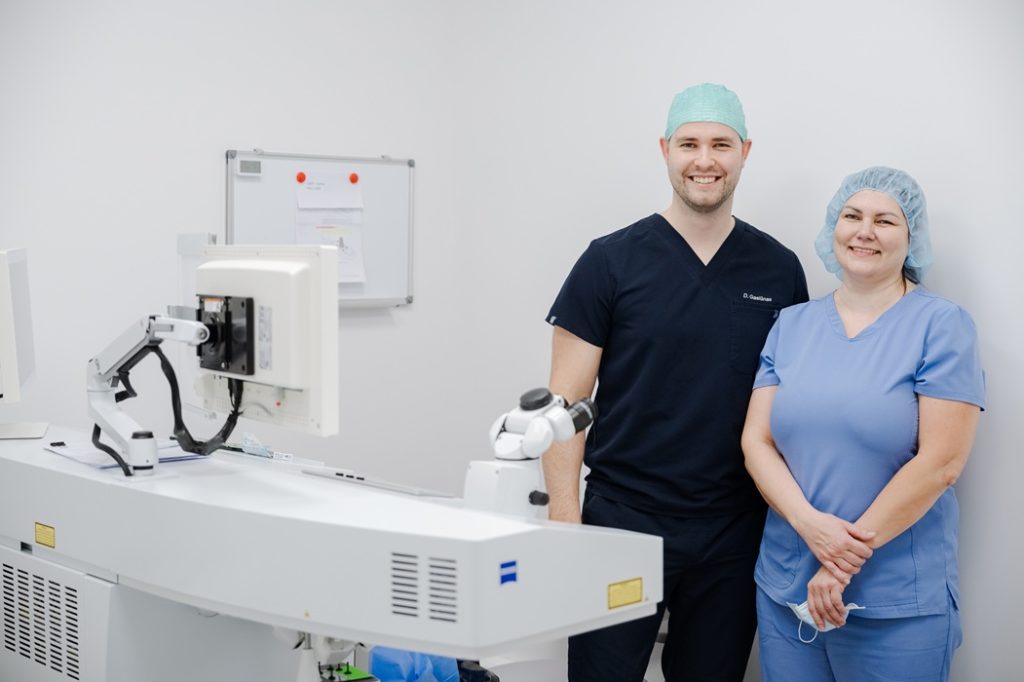One of the most common questions patients ask when considering laser eye surgery is whether the result will be long-lasting. Is one procedure truly enough for a lifetime? Or should it be repeated after some time? Dovydas Gasiūnas, a microsurgeon at Lirema Eye Clinic, provides answers.
According to the microsurgeon, these questions from patients are absolutely natural – after all, we are talking about a decision that aims to say goodbye to glasses or lenses forever.
“The question of how long clear vision will last after the procedure is completely understandable – the procedure requires serious decision-making, time, and investment. Hundreds of thousands of performed operations and long-term medical studies allow us to state that, for many patients, the results of laser eye surgery remain stable even after decades,” says D. Gasiūnas.
Scientifically Proven
“One of the largest studies, published in the American Academy of Ophthalmology journal, included nearly 20,000 patients who underwent laser vision correction. According to the study data, 96% of patients were still enjoying the same visual sharpness ten years after the surgery, without the need for glasses or contact lenses,” shares the doctor.
According to D. Gasiūnas, although SMILE is one of the newest laser eye surgery methods introduced to the market, sufficient data has already been accumulated to confirm its safety and effectiveness.
“A study published in the British Journal of Ophthalmology evaluated the results of the SMILE method after five years for correcting myopia and astigmatism. The data confirms that the results of good vision after surgery using this method are effective and long-lasting,” the specialist notes.
Summarizing the data from international studies, most vision changes that may occur after a long time are usually unrelated to the procedure itself, but rather to the natural ageing of the eyes, other diseases, or injuries.
“Over time, vision can change, for example, with the onset of presbyopia – an age-related loss of the ability to see up close. This process affects everyone, regardless of whether they have undergone usual laser eye surgery or not. But even for older patients, we now can offer correction options for presbyopia,” the microsurgeon adds.
What You Should Know Before Deciding
According to the doctor, every patient undergoes a full eye examination at the clinic, after which the doctor assesses whether the patient is a suitable candidate for the procedure and which methods are possible in the patient’s individual case.
“We perform a detailed eye examination for each patient, assess individual visual indicators, corneal thickness, eye fundus, and general state of health. If there are doubts about the longevity of the correction, the limits for a safe operation are exceeded, or if we suspect the patient will enjoy results only for a short time, we do not recommend the procedure,” the doctor explains.
D. Gasiūnas notes that while some patients may feel disappointed about this, it’s important to understand that we do everything for the patient’s safety and the desire to preserve good vision for as long as possible.
“The final result also depends on the cooperation between doctor and patient, and following post-operative recommendations – using prescribed drops, protecting the eyes from possible sources of infection, UV rays, and so on,” emphasizes the microsurgeon.
In the long term, laser eye surgery is one of the safest and most effective procedures, offering a quick solution for those who want to live a comfortable life.
